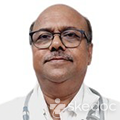Best Doctors for Vitamin D Deficiency Treatment in Kolkata
Vitamin D Deficiency
Vitamin D is crucial for promoting healthy bone growth and maintenance and supporting the nervous, musculoskeletal, and immune systems. Deficiency is often addressed with supplements; however, determining the correct dosage may require guidance from a doctor.
Are you in search of the best doctors for Vitamin D Deficiency treatment in Kolkata? Skedoc streamlines your quest by linking you with esteemed specialists well-versed in addressing Vitamin D-related issues. Discover trusted experts effortlessly and take charge of your health today!
133 Doctors for Vitamin D Deficiency Treatment found
Premises No. 99
Satnam Apartment, 310, Jessore Rd
Lake Town, Kolkata
Get directions

OP Timings
Mon | 04:00 pm - 05:00 pm |
Fee : 800
99, VIP Park, Premises No. BMC-AS/331/F,BL-BB,
Prafulla kanan, Krishnapur
Kestopur, Kolkata
Get directions

OP Timings
Mon,Wed,Fri | 11:00 am - 12:00 noon |
Fee : 900
Suraksha Clinic & Diagnostics
Tollygunge
Ward No-95, Premises No. 130
Netaji Subhas Chandra Bose Road, Tolly Exotica Building
Tollygunge, Kolkata
Get directions

OP Timings
Tue | 11:00 am - 12:00 noon |
Fee : 600
Swastik Apartment , 1st Floor
Kaji Nazrul Islam Avenue
Tegharia, Kolkata
Get directions

OP Timings
Wed - Fri | 12:00 noon - 02:00 pm |
Fee : 600
99, VIP Park, Premises No. BMC-AS/331/F,BL-BB,
Prafulla kanan, Krishnapur
Kestopur, Kolkata
Get directions

OP Timings
Thu - Fri | 09:00 am - 10:00 am |
Fee : 600
BB-99, VIP Park
Prafulla Kanan
Kestopur, Kolkata
Get directions

OP Timings
Thu - Fri | 09:00 am - 11:00 am |
Fee : 600
VIP Road
Near Disha Eye Hospital
Tegharia, Kolkata
Get directions

OP Timings
Sun | 09:00 am - 11:00 am |
Fee : 600
F/F-12, Hatiara Road
Swamiji Pally, Zarda Bagan
Rajarhat, Kolkata
Get directions

OP Timings
Wed - Thu,Sat | 04:00 pm - 06:00 pm |
Fee : 500
JC 21, Sector - III
Opposite Stadel, Above Subway
Salt Lake, Kolkata
Get directions

OP Timings
Fri | 05:00 pm - 08:00 pm |
Fee : 1500
Swastik Apartment , 1st Floor
Kaji Nazrul Islam Avenue
Tegharia, Kolkata
Get directions

OP Timings
Sat | 09:00 am - 01:00 pm |
Fee : 2000
Dr. Prattay Ghosh
MBBS, MD (Gen Med), PGDCC
PG Diploma in Clinical Endocrinology & Diabetes
General Physician
View Profile
Southend Conclave, 1582
Kasba New Market
Kasba, Kolkata
Get directions

OP Timings
Thu | 04:00 pm - 05:00 pm |
Sun | 10:00 am - 11:00 am |
Fee : 700
Swastik Apartment , 1st Floor
Kaji Nazrul Islam Avenue
Tegharia, Kolkata
Get directions

OP Timings
Wed,Fri | 08:00 am - 09:00 am |
Fee : 700
99, VIP Park, Premises No. BMC-AS/331/F,BL-BB,
Prafulla kanan, Krishnapur
Kestopur, Kolkata
Get directions

OP Timings
Tue - Sat | 05:00 pm - 06:00 pm |
Fee : 700
Southend Conclave, 1582
Kasba New Market
Kasba, Kolkata
Get directions

OP Timings
Mon - Thu,Sat | 09:00 am - 12:00 noon |
Fri | 09:00 am - 11:00 am |
Fee : 700
Indraprastha Apartment
24 , M.B. Road , Kalabagan
Birati, Kolkata
Get directions

OP Timings
83/10
Anima Appartment
Barasat, Kolkata
Get directions

OP Timings
Mon | 03:00 pm - 04:00 pm |
Fee : 700
Suraksha Clinic & Diagnostics
Salt Lake
JC 21, Sector - III
Opposite Stadel, Above Subway
Salt Lake, Kolkata
Get directions

OP Timings
Mon - Tue,Thu,Sat | 05:00 pm - 06:00 pm |
Fee : 1100
Suraksha Clinic & Diagnostics
Jadavpur
Ekta Heights, 56, Raja Subodh Chandra Mallick Rd
near BaghaJatin Ramkrishna Upanibesh
Jadavpur, Kolkata
Get directions

OP Timings
Mon - Wed | 03:00 pm - 04:00 pm |
Fri | 04:00 pm - 05:00 pm |
Fee : 1000
Suraksha Clinic & Diagnostics
Sodepur
Ward No. 33, Holding, 63
Barasat Rd, Katgola
Sodepur, Kolkata
Get directions

OP Timings
Mon,Fri | 12:00 noon - 01:00 pm |
Tue,Sat | 03:00 pm - 04:00 pm |
Sun | 02:00 pm - 03:00 pm |
Fee : 500
Swastik Apartment , 1st Floor
Kaji Nazrul Islam Avenue
Tegharia, Kolkata
Get directions

OP Timings
Mon | 11:00 am - 12:00 noon |
Fee : 1000
99, VIP Park, Premises No. BMC-AS/331/F,BL-BB,
Prafulla kanan, Krishnapur
Kestopur, Kolkata
Get directions

OP Timings
Mon | 04:00 pm - 06:00 pm |
Wed | 05:00 pm - 06:00 pm |
Fri | 04:00 pm - 05:00 pm |
Fee : 1000
Suraksha Clinic & Diagnostics
Kestopur
99, VIP Park, Premises No. BMC-AS/331/F,BL-BB,
Prafulla kanan, Krishnapur
Kestopur, Kolkata
Get directions

OP Timings
Tue,Sat | 11:00 am - 12:00 noon |
Fee : 700
Southend Conclave, 1582
Kasba New Market
Kasba, Kolkata
Get directions

OP Timings
Mon,Wed,Fri - Sat | 05:00 pm - 06:00 pm |
Fee : 1000
1st Floor, One Sunny Park
Sunny Towers, 43, Ashutosh Chowdhury Ave
Ballygunge, Kolkata
Get directions

OP Timings
Thu - Sat | 11:00 am - 12:00 noon |
Mon | 12:00 noon - 01:00 pm |
Fee : 1000
Suraksha Clinic & Diagnostics
Sinthee
46/1C
P.S. Cossipore
Sinthee, Kolkata
Get directions

OP Timings
Mon,Fri | 05:00 pm - 06:00 pm |
Fee : 600
Suraksha Clinic & Diagnostics
Kestopur
99, VIP Park, Premises No. BMC-AS/331/F,BL-BB,
Prafulla kanan, Krishnapur
Kestopur, Kolkata
Get directions

OP Timings
Sun | 12:00 noon - 01:00 pm |
Fee : 500
What are the symptoms of Vitamin D Deficiency?
In children, severe vitamin D deficiency can result in rickets, problems like incorrect bone growth patterns, muscle weakness, bone pain, and rare joint deformities. Mild deficiency may cause muscle discomfort.
For adults, the signs of deficiency can be less obvious and may include fatigue, bone pain, muscle weakness, aching, cramps, and mood changes such as depression. Some adults may not show any noticeable signs of deficiency. However, it is important to consult with doctors even with mild symptoms. Low blood levels of this vitamin have been linked to an increased risk of Cardiovascular Emergencies-relatedmortality, cognitive impairment in older adults, development of severe asthma in children, and certain types of Cancer. Research also suggests that vitamin D plays a significant role in preventing and treating various conditions, such as Type 1 and Type 2 Diabetes, glucose intolerance, hypertension, and multiple sclerosis.
What are the causes of Vitamin D Deficiency?
When it comes to vitamin deficiency treatment, it is essential to understand what causes it. The causes of vitamin D deficiency are:
- Inadequate Dietary Intake: If you are following a strict Vegan Diet, you may need more vitamin D because significant sources of this vitamin are animal-based. This includes fish and fish oils, beef, liver, egg yolks, and fortified milk.
- Limited Sunlight Exposure: When your body is exposed to sunlight, it makes Vitamin D. If you are homebound, reside in regions with minimal sunlight, wear concealing clothing, or have an occupation restricting sun exposure, you may have a vitamin deficiency. The deficiency can be more common during winter when daylight is limited.
- Dark Skin: If you have darker skin, there might be more need for Vitamin D Deficiency Treatment. In darker skin, there is high Melanin (the skin pigment), which reduces the skin's ability to produce vitamin D when exposed to sunlight.
- Kidney Function: As people age, their kidneys may become less efficient at converting vitamin D into its active form. This aspect should be considered in treatment.
Vitamin D Deficiency can also result from certain medical conditions, weight loss surgeries, and some medications. Various biological and environmental factors, including older age, can increase the risk of deficiency.
How to prevent Vitamin D Deficiency?
To prevent vitamin D deficiency, it's essential to maintain a balanced diet and get enough sun exposure. Be cautious about prolonged sun exposure without sunscreen, as it may increase the risk of skin cancer.
According to age, the doctors recommend daily Vitamin D intake as follows:
- Infants up to 12 months should have 10 mcg (400 IU)
- Individuals aged 1 to 70 require 15 mcg (600 IU)
- Those who are 71 and older need 20 mcg (800 IU)
- Pregnant or breastfeeding individuals should aim for 15 mcg (600 IU)
You can get Vitamin D from natural sources such as fatty fish (Salmon, Tuna, Mackerel, Sardines), rainbow trout, beef liver, mushrooms, egg yolks, and cod liver oil. Also, have foods fortified with Vitamin D, such as milk, plant-based milk alternatives, breakfast cereals, and yogurt. Consult vitamin D deficiency specialists near you for all your concerns about vitamin D.
Frequently asked questions
What is the fastest way to cure vitamin D deficiency?

To cure vitamin D deficiency, it is crucial first to consult a medical professional and follow their advice on taking vitamin D supplements in the recommended dosage. It is also essential to get sufficient sun exposure and consume foods fortified with vitamin D or naturally containing small amounts of it.
Does the endocrinologist deal with vitamin D deficiency in Kolkata?

Endocrinologists are adept at diagnosing vitamin D deficiency and providing low vitamin D treatment. Endocrinologists specialize in hormone and metabolic problems, and vitamin D can be considered a hormone as it is made in the body and plays a vital role in many body functions.
How can I check my vitamin D levels at home?

Checking vitamin D levels at home is only possible through at-home vitamin D testing kits. A small blood sample needs to be taken, packaged, and sent to a lab as instructed, where it will be analyzed, and the results will be sent back.
Which doctor is best for vitamin D deficiency in Kolkata?

Specialists for vitamin D deficiency that one should consult for the problem include primary care physicians or internal medicine specialists. If there is an underlying cause of the deficiency, other specialists, such as endocrinologists or rheumatologists, must be consulted to manage the underlying cause.





















